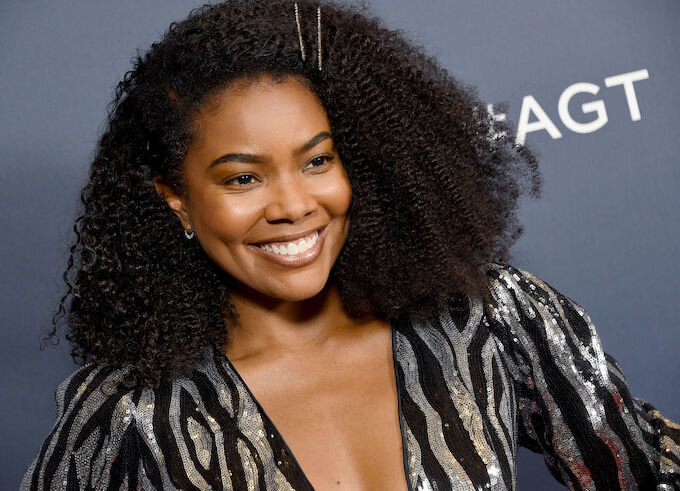5 Black Women Who Refused to be Silenced
Gabrielle Union
It has been revealed that Gabrielle Union was fired from the long-running NBC show, America’s Got Talent after just one season. Gabrielle is said to have spoken out on racially charged jokes on-set and apparently was faced with comments about her rotating hairstyles being “too black”.
NBC's reputation towards the treatment of women is already in the mud after recent scandals and yet they still appear to be peddling the same "toxic culture". They claim to champion "inclusivity and diversity", but the pattern of hiring for America’s Got Talent is nothing more than a diversity checkbox.
Brandy was a judge for one episode during season one. Nick Cannon joined the cast as host in season four. He left after a long tenure of eight seasons, leaving at the end of season 11. Tyra Banks replaced Nick for a couple of seasons and now the show is currently being hosted by Terry Crews. Mel B joined the cast in season 8 - season 13 as a judge and was replaced by Gabrielle Union.
Gabrielle uses her social media platforms to advocate for justice and Black women. Her 14.6 million Instagram followers and 4.2 million Twitter followers look forward to her weekly #WCW where she spotlights the talents and contributions of various black women and we love to see it. So it was no surprise to find that she openly spoke out about the casual racism around her.
Black women throughout history have always shown their heroism against extreme odds. I AM takes a look at five remarkable black women who also refused to be silenced.
1. Olive Morris (1952 -1979) was a Jamaican born activist and community leader. She moved from Jamaica to south London with her family at age nine. During the 1970’s Olive Morris became a member of the youth section of the British Black Panther Movement. She was also a founding member of the Brixton Black Women's Group and the Organisation of Women of African and Asian Descent (OWAAD).
Olive spent her very short life fervently campaigning for decent housing and successfully secured an agreement for squatters rights in 1973 in the borough of Lambeth. A huge accomplishment was the establishment of a supplementary school in Manchester after campaigning with local black parents for better education provision for their children.
2. Funmilayo Ransome-Kuti (1900-1978) was a Nigerian political and women’s rights activist, teacher and also the first woman in the country to drive a car.
As one of very few women of the time to be educated at all much less educated in England, she used her privilege to organise the resistance against colonialism and inequality.
In 1944, she founded the Abeokuta Ladies’ Club which campaigned for women’s political, social and economic rights. This would become one of the most important women’s movements of the twentieth century. At its peak the organisation had 100,000 members from middle class educated women to market women. One of her most successful achievements was the abolishing of an unfair tax targeted at market women.
3. Audre Lorde (1934-1992) was an American writer, celebrated for her inter-sectional activism. Lorde’s poetry was an emotional commentary on the indignation of the civil and social injustices of the disenfranchised.
In 1977 Audre Lorde became an associate of the Women's Institute for Freedom of the Press which was established to provide the public with women-based media.
She was also one of the founders of the Women’s Coalition of St. Croix, an organization dedicated to assisting women who have survived sexual abuse and intimate partner violence (IPV). In the late 1980s, she also helped establish Sisterhood in Support of Sisters (SISA) in South Africa to benefit black women who were affected by apartheid and other forms of injustice.
4. Senedu Gebru (1916-2009) was an Ethiopian educator, politician and writer. In the 1930s along with her siblings she joined Haile Selassie’s opposition movement against the resistance of Italian occupation. She received military training whilst in the cadets and joined and the anti-fascist movement Black Lions where she became an informant about Italian troop movement. In 1937 she was captured and interrogated by the Italians.
In 1943 she became Head Mistress of the all girls Empress Etege School where she wrote plays for the students to act out as an exercise to help with public speaking.
In 1957 she became the first woman to be elected to Parliament.
5. Mnyazi (Mekatili) wa Menza (1840 -1914) was a Kenyan anti-colonial leader. She was a Giriama, a Bantu speaking sub tribe of Mijikenda living along the coastlines of Kenya.
Mekatili would speak about Mepoho’s prophecy, the coming of the strange people, with sisal hair that would destroy their people and culture. Sure enough, that prophecy came true with the building of railway by the Imperial British East African Company.
Women did not usually hold any power in the patriarchal society but as a widow, which Mekatili was, afforded more freedom and leadership. Widows in her tribe would perform a ceremonial dance called kifudu, she used this as a means to organise resistance against the British.
In 1913 a British administrator by the name of Arthur Champion held a public meeting where he gave out ridiculous demands to her community. Mekatili, was completely opposed to his demands and engaged in a heated argument which resulted in her slapping Champion, for which she was arrested and imprisoned for a year. In 1914 she broke out of prison unnoticed and continued her resistance against the British.


